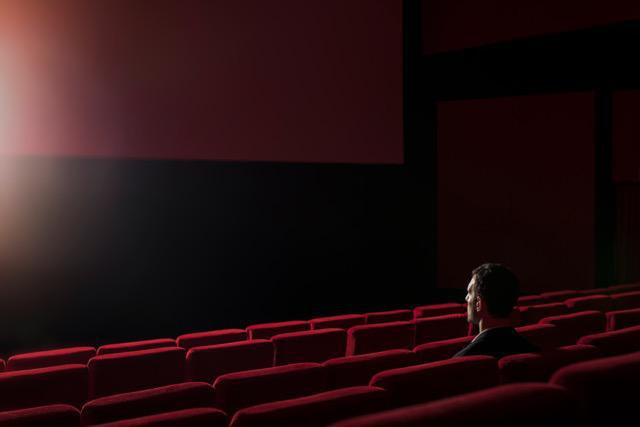The year started well for international cinema chain Kinepolis group. Up until 12 March 2020, visitor numbers were up 12%. Then lockdown hit. Its Luxembourg cinemas remained closed until June. It meant that for the first half of the year, ticket sales in Luxembourg fell 59% compared to the same period in 2019.
During this period it benefited from economic rescue measures, “with the possibility of temporary unemployment being a crucial one,” according to Kinepolis country manager Christophe Eyssartier. But the challenges continued.
Social distancing or masks
A key condition for reopening was the need to allow a distance of two metres within a 360° radius between viewers, unless they were seated with someone from the same household or wearing masks. No cinema wanted to impose the wearing of masks and so took measures to ensure social distancing, which limited their capacity.
“It is difficult to put a precise figure because it depends on the size of the parties that come to the cinema,” Eyssartier said. According to the group’s half yearly results, in the majority of cinemas maximum capacity fell to 35%. The group found solutions, in Belgium by hosting outdoor drive-in cinemas and running simultaneous screenings of blockbusters in different rooms, which can increase capacity to as much as 80%, the group wrote.
Cinémathèque
Because of the layout of its 187-seat screening room, the City-run Cinémathèque cinema’s capacity has fallen to between 13% and 22%, depending on visits from single households.
“Due to the very reduced gauge of seats, we were selling out most of our screenings since July and often had a waiting list of spectators hoping to get in at the very last moment. For that reason, we fervently hope that the social distancing rules for cinemas will sooner or later be adapted, so that more people would have the opportunity to join our screenings,” cinema press officer Catherine Krettels told Delano.
In July, the Cinémathèque also organised “Kino um Glacis – Drive & Walk-in”, a project its team devised during lockdown. From the 16 screenings, 12 were sold out and the other 4 were very close to being fully booked. Altogether they sold approximately 6,500 tickets.
“All in all, we were extremely glad about the outcome and the general reception of the project,” Krettels said. Starting 2021, the cinema will restart its traditional “Université populaire du cinéma” series, for which it is considering hosting the same conference twice to broaden access. The Cinémathèque also played on the cinematic experience with its "Why We Love Cinema" series launched at the reopening in July. And, with Disney+ joining a Netflix and Amazon Prime Video video on demand platforms on 15 September, this USP is critical for cinemas.
Video on demand
But, will it be enough to compete given that some studios skipped cinema releases altogether and opted to release their new creations via VOD because of the pandemic? Film festivals aside, the vintage-style Cinémathèque, which shows mostly old and classic movies, is less impacted by this trend. Eyssartier feels that these VOD releases are “mostly a one-off given the exceptional circumstances” and the threat from VOD was not at the top of his list of concerns.
Eyssartier said: “The contribution of the ‘theatrical window’ (the period a movie runs in theatres) is very important in the payback model and life cycle of a movie. And the moviegoing experience remains above all a ‘social’ experience. Perhaps people will value ‘out-of-home entertainment’ and ‘sharing experiences’ even more going forward.”
Meanwhile, Kinepolis has found alternatives to complement its content, such as concerts, reruns in 4DX versions or thematic content.
